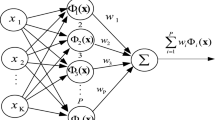Abstract
Ordinal Optimization (OO) is a useful simulation-based approach for stochastic optimization problems such as the problems in Discrete Event Dynamic Systems (DEDS). However, OO cannot be applied directly for the problem since many infeasible decisions cannot be excluded from ordinal comparison without extensive computation involving the expectation operation. In this paper, a new approach for solving constrained ordinal optimization (COO) problems is presented. The key idea of our method for constrained OO problems is to estimate the feasibility of decisions and to choose selected subset based on the estimated feasibility. Any crude method such as the one based on rough set theory developed in our previous work can be applied to determine the decision feasibility efficiently. The algorithm for subset selection and the procedure of Blind Picking with Feasibility Model (BPFM) for COO are derived in the paper. The infeasible decisions are excluded by an imperfect feasibility model in the procedure of subset selection. The performance of the new method is evaluated and compared with the regular OO method. Numerical testing with two examples including the planning problem of a practical remanufacturing system shows that to meet the same required alignment probability, BPFM is more efficient than pure Blind Picking in regular OO.
Similar content being viewed by others
References
Cassandras CG (1993). Discrete Event Systems: Modeling and Performance Analysis. Boston, Massachusetts: Aksen Associates.
Chen C, Donohue K, Yucesan E, Lin J (2003). Optimal computing budget allocation for Monte Carlo simulation with application to product design, Simulation Modeling Practice and Theory, 11:57–74.
Dai L (1996). Convergence properties of ordinal comparison in the simulation of discrete event dynamic systems, J. Optim. Theory and Appl., 91(2):363–388.
Fu M (2002). Optimization for simulation: theory vs. practice (feature article), INFORMS Journal on Computing, 14(3):192–215.
Han J, Kamber M (2002). Data Mining Concepts and Techniques. Beijing: Higher Education, ch. 3.
Ho YC (1994). Overview of ordinal optimization. In Proceedings of 33rd Conference on Decision and Control, Lake Buena Vista, Florida, pp. 1975–1977, December.
Ho YC (1999). An explanation of ordinal optimization: soft computing for hard problems, Information Sciences, 113:169–192.
Ho YC, Lin SY (2002). Universal alignment probability revisited, J. Optim. Theory and Appl., 113(2):399–408, May.
Ho YC, Sreenivas RS (1991). Ordinal optimization of discrete event dynamic systems, Journal of DEDS, 2(2):61–88.
Ho YC, Lee LH, Lau ETK (1999). Explanation of goal softening in ordinal optimization, IEEE Trans. Automat. Contr., 44(1):94–99.
Ho YC, Zhao Q, Pepyne DL (2003). The no free lunch theorems: complexity and security, IEEE Trans. Automat. Contr., 48(5), May.
Jia QS, Ho YC, Zhao QC (2005). Selection rules for ordinal optimization, Journal of Mathematical and Computer Modeling.
Lau TWE, Ho YC (1997). Universal alignment probabilities and subset selection for ordinal optimization, Journal of Optimization and Theory, 39(3).
Lee LH, Li WG, Ho YC (1999). Vector ordinal optimization—a new heuristic approach and its application to computer network routing design problems, Int. J. Oper. Quant. Manag., 5(3):211–230.
Li D, Lee LH, Ho YC (2002). Constraint ordinal optimization, Information Sciences, 148:201–220.
Song C, Guan XH, Zhao QC, Ho YC (2005). Machine learning approach for determining feasible plans of a remanufacturing system, IEEE Transaction on Automation Science and Engineering, 2(3):262–275.
Spall JC (2003). Introduction to Stochastic Search and Optimization: Estimation Simulation and Control. Wiley, 1st edition, March.
Xie XL, (1998). Dynamics and convergence rate of ordinal comparison of stochastic discrete event systems, IEEE Transactions on Automatic Control.
Zhao QC, Ho YC, Jia QS (2005). Vector ordinal optimization, J. Optim. Theory and Appl., 125(2):259–274.
Author information
Authors and Affiliations
Corresponding author
Additional information
The research presented in this paper is supported in part by the National Outstanding Young Investigator Grant (6970025), National Science Foundation (60243001, 60274011, 60574067) and 863 High Tech Development Plan (2001AA413910) of China. The research effort of Ho is supported in part by U.S. Army Research Office (contract DAAD19-01-1-0610), U.S. Air Force Office of Scientific Research (contract F49620-01-1-0288).
Rights and permissions
About this article
Cite this article
Guan, X., Song, C., Ho, YC. et al. Constrained Ordinal Optimization—A Feasibility Model Based Approach. Discrete Event Dyn Syst 16, 279–299 (2006). https://doi.org/10.1007/s10626-006-8137-5
Published:
Issue Date:
DOI: https://doi.org/10.1007/s10626-006-8137-5



